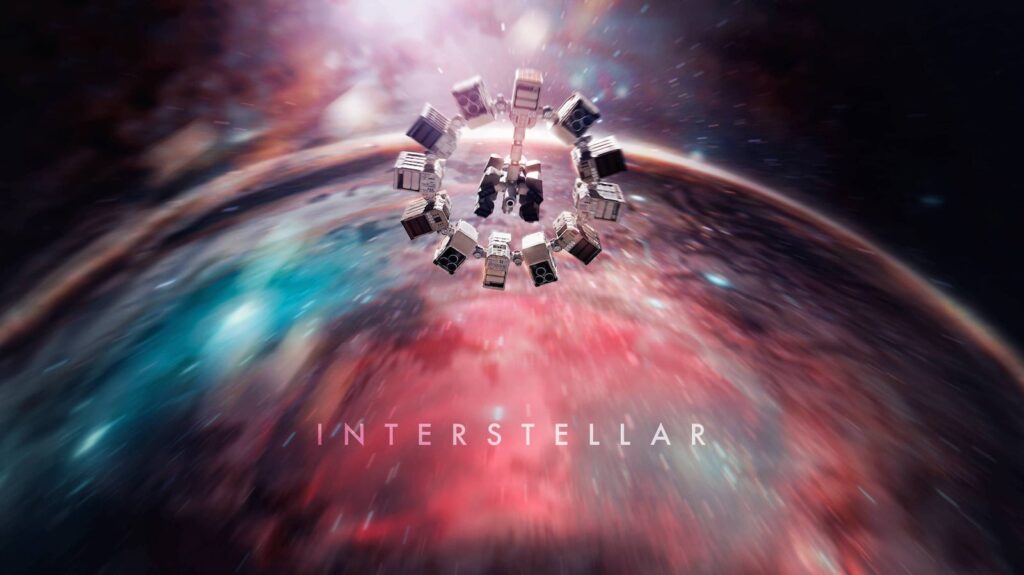When Interstellar premiered in theaters a decade ago, I left with mixed feelings. While the visuals and ambition were undeniable, something about the movie failed to resonate with me at first. Over the years, however, I found myself drawn back to it, rewatching it with fresh eyes. Each time, I gained a deeper appreciation for its themes, eventually coming to love it for the profound questions it raises about humanity, survival, and the interconnectedness of our choices.
Now, as Interstellar celebrates its tenth anniversary, I want to explore its enduring relevance and how its themes tie into global security, a topic central to my academic and professional journey.
The Science Behind the Fiction
A critical part of what makes Interstellar so compelling is its scientific foundation. The film’s science advisor, Kip Thorne, is a renowned physicist and a Nobel Prize laureate whose groundbreaking work on black holes and gravitational waves has expanded our understanding of the universe. Thorne ensured that the film remained as scientifically accurate as possible while still weaving an emotional and dramatic narrative.
His book, The Science of Interstellar, is a fascinating exploration of the scientific principles behind the film. It delves into the physics of black holes, wormholes, and time dilation, making these complex concepts accessible to readers. I found the book both illuminating and inspiring, as it bridges the gap between theoretical science and storytelling. Thorne’s contributions remind us that science is not just a pursuit of knowledge but a way to imagine and prepare for the future.
The Fragility of Earth and the Need for Collective Action
One of the most striking aspects of Interstellar is its depiction of a dying Earth. Environmental degradation, food scarcity, and societal collapse are not far-fetched scenarios but exaggerated reflections of challenges we face today. Climate change, biodiversity loss, and resource conflicts threaten the stability of nations and the well-being of populations.
In the film, humanity’s survival depends on a willingness to confront these existential threats collectively, bridging gaps between science, policy, and human resilience. This mirrors the global security landscape, where transnational cooperation is critical to address climate-related risks, manage shared resources, and build adaptive capacity.
Space Exploration as a Security Imperative
Interstellar also highlights the transformative power of space exploration. While its narrative focuses on finding a new home for humanity, the film indirectly underscores the strategic importance of space for Earth-bound challenges. Satellites, for example, play a pivotal role in monitoring climate change, managing natural disasters, and supporting critical infrastructure.
In a global security context, the film invites us to consider the dual-use nature of space: while it offers solutions to pressing problems, it also raises questions about militarization, governance, and equitable access. The film’s emphasis on pushing boundaries resonates with current discussions about space as a domain for international cooperation and potential conflict.
Love and Survival: A Human-Centric Approach
Amidst its scientific and philosophical musings, Interstellar grounds itself in a deeply human story: the bond between Cooper and his daughter, Murph. The film reminds us that global security is not just about systems and strategies but also about the lives and aspirations of individuals. Policies and actions must prioritize human security, ensuring that the most vulnerable are protected and empowered.
This human-centric perspective aligns with approaches that view security through lenses such as climate justice, migration, and the equitable distribution of resources. The film’s message of love as a unifying force can inspire us to prioritize compassion and solidarity in addressing global challenges.
Looking Ahead
A decade after its release, Interstellar remains a cinematic masterpiece that challenges us to think beyond the immediate and consider the long-term implications of our choices. Its messages about cooperation, exploration, and the resilience of the human spirit are as relevant today as they were in 2014.
Kip Thorne’s Nobel-winning contributions to science and his ability to bring cutting-edge concepts into the public imagination further highlight the importance of bridging disciplines to address humanity’s greatest challenges. As we navigate an increasingly complex global security landscape, Interstellar serves as both a warning and a source of hope. It reminds us that while the threats we face are monumental, so too is our capacity for innovation, collaboration, and survival.
What are your thoughts on Interstellar and its messages? How do you see its themes reflected in today’s world? I’d love to hear your perspective as we celebrate this milestone in the film’s legacy.

